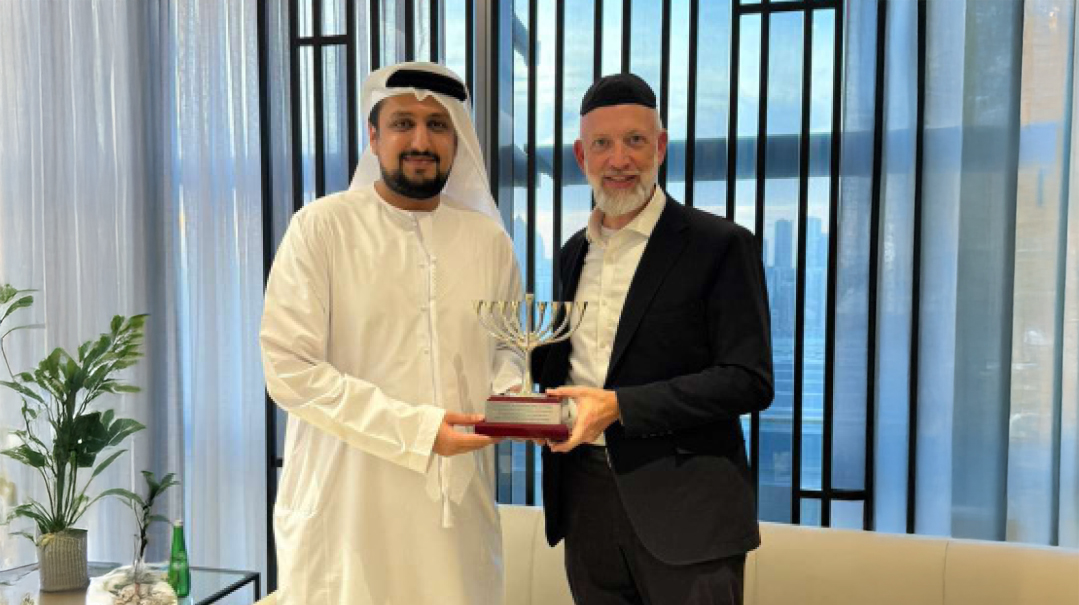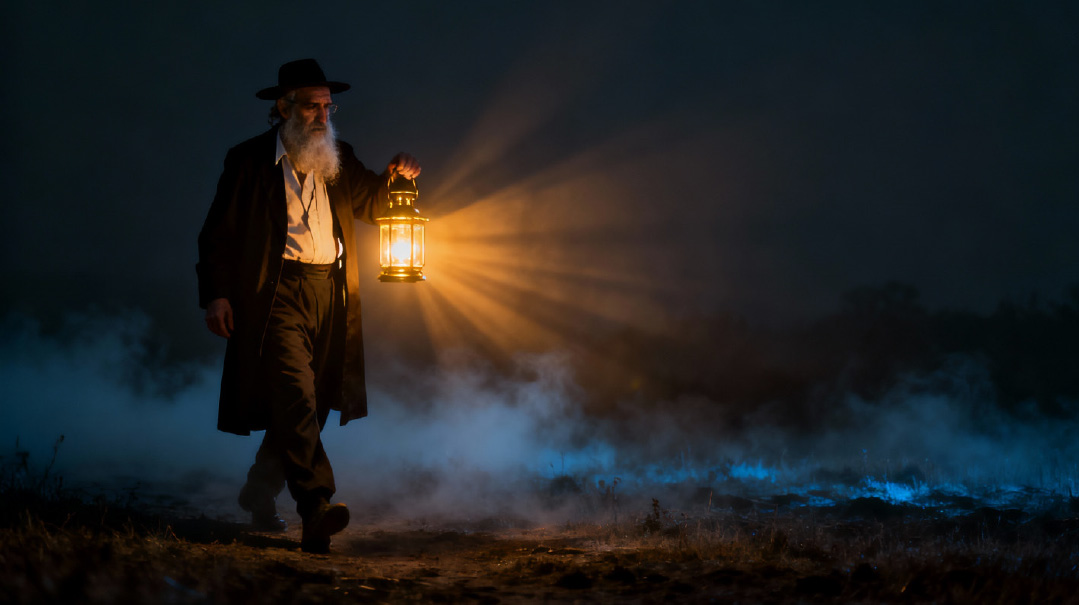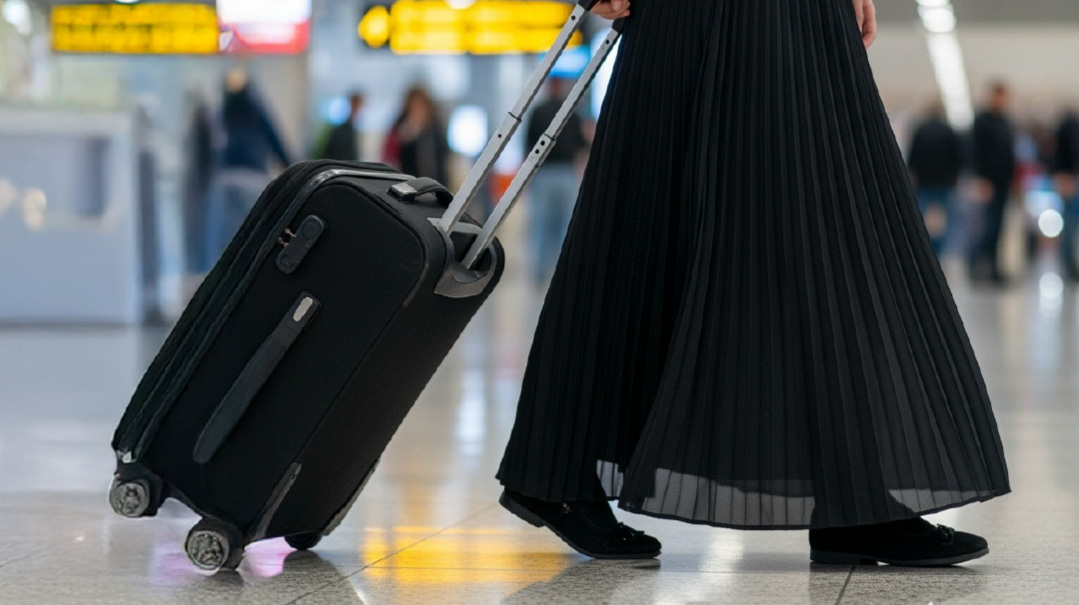Tell It Like It Is

Hollywood is full of examples that peddle stereotypes, tropes, and inaccuracies about Orthodox Jews
This past summer, I was involved in a campaign to reclaim the narrative about Orthodox women from the megaphone of the entertainment industry, as one television series in particular made a targeted attempt to inaccurately represent our people. Thousands of frum women, representing the entire spectrum of Orthodoxy, utilized their voices on various online and print platforms to tell their stories, refuting the claims made against them and sharing the beauty of our lifestyle and beliefs. It was a moment not only for Orthodox women, but for Orthodox Judaism. As one non-Jewish woman posted on LinkedIn, “Tonight I wish I were an Orthodox Jewish woman. I am sure anyone seeing the beautiful rich posts of Esther, Shany, and Shterny would wish that too! These women are not just successful in their professional lives, but they are much more. They are devoted wives, caring mothers, and the best example of how a normal society should be.”
The campaign got press in both Jewish and secular media all over the world. Back in August, I mused with Rivkie Feiner, one of the contributors to the campaign, how incredible it would be if we could do a talk about this at the Agudah convention. And then much to my surprise and delight, we were later invited to speak at the livestreamed Thursday night session that took place this past Thanksgiving weekend.
Our panel was entitled, “Our Orthodox Lives: Breaking Stereotypes, Living Our Values.” Moderated by Mrs. Chanie Jacobowitz, vice president of government affairs for Beis Medrash Govoha, the panel addressed what we can do as frum women to properly represent ourselves to the outside world, whether it be in our involvement in politics, social media, or everyday community relations.
The essential questions at the root of the panel actually apply to all members of the frum community. Is it our job to combat the media’s negative portrayal of the Orthodox community, or is it better to ignore and not draw attention to it? How important is it for us to be concerned about how the outside world perceives us? When we speak out to combat stereotypes, what is our goal — to make ourselves feel validated because the negative portrayal of the frum community touches a nerve, or is it coming from a place of strength and proactive effort to change the narrative? Finally, how do we avoid the pitfalls of social media when we attempt to use it to break stereotypes about the Orthodox community?
I JOINED TWO ESTEEMED community activists and role models on the podium: Mrs. Rivkie Feiner and Rebbetzin Faigie Horowitz. Both are examples of influential women who have invested their energies in creating organizations and initiatives to serve our community best, but who are also attuned to the importance of our interactions with the secular world, and the ramifications — both negative and positive — for the welfare of the Orthodox community.
As CEO of Feiner Grant Strategies, Mrs. Feiner and her firm are responsible for bringing in hundreds of millions of dollars in funding to frum mosdos and nonprofits in the United States and beyond. As a resident of Rockland County, she often represents the frum community to the media, government officials, and diverse community leaders, and serves on various Federation and community boards. She also has joined lay-leader trips to Albany and Washington. The trust and mutual respect she’s fostered with key members of both the broader Jewish and non-Jewish communities is her secret sauce to breaking stereotypes and effectively representing our community and values.
Rivkie uses her people skills and leadership abilities to network and foster cooperation and collaboration between diverse populations, and in doing so, she represents Orthodox women to the outside world as confident, capable, knowledgeable, and respected, destroying the stereotypical view of religious women as downtrodden and oppressed.
Rebbetzin Faigie Horowitz, the daughter of the Novominsker Rebbe ztz”l, has served in various senior roles at nonprofits. A writer and political advocate, Rebbetzin Horowitz cofounded a shelter for homeless girls, as well as JWOW (Jewish Women of Wisdom), a national community for mid-lifers, in addition to being the community rebbetzin of Agudas Achim of Lawrence. Rebbetzin Faigie is passionate about what the average, overwhelmingly busy frum woman can do to combat stereotypes and make a kiddush Hashem in her daily life. While our secular neighbors may never fully understand our way of life or our values, we can do our best to make sure we are perceived as sensitive, courteous, and good neighbors.
Rebbetzin Faigie believes one of the best ways to achieve this is through one-on-one exchanges with people outside our own community; talking about our own personal chesed work creates connection. Moreover, it fosters respect for our community, and nurtures positive interest in us as human beings. Chesed is the great equalizer.
My job was to represent the role we can take in breaking stereotypes in the media. Media misrepresentation is an issue for all minority groups, but it seems that Orthodox Jews have taken the spotlight in recent years, with depictions in the entertainment industry that are far from flattering — or authentic. Hollywood is full of examples that peddle stereotypes, tropes, and inaccuracies about Orthodox Jews. This is partly due to poor fact-checking and lazy efforts to properly research our way of life. In addition, it’s the ex-Orthodox Jews who are serving as consultants, writing scripts, and starring in the shows. Our supposed story is being told by those who have left and have no qualms about burning the building down on their way out.
Those of us who are proud to be here need to reclaim our narrative. But how?
Writing letters to movie streaming companies isn’t going to make a difference. But there are those, like Allison Josephs of Jew in the City, whose mission is to fight media misrepresentation of the Jewish community on an organizational scale. Allison breaks stereotypes daily through her social media activism, programming, and educational efforts, and she’s even launching a Hollywood bureau for Orthodox Jews, similar to the bureaus representing other minority groups, which will fight for better storytelling and more authentic depictions of Jews on the silver — or computer — screen.
HOLLYWOOD IS POWERFUL. It shapes people’s views and beliefs about groups to whom many have zero exposure. So, if a show claims, from the perspective of a former insider, that Jewish women are uneducated, fundamentalist baby-making machines who have no autonomy or agency to accomplish anything besides serving their husbands, people will consider such a spokesperson reliable. And if you’ve never met an Orthodox Jew before, you may very well believe it.
Yet each time frum people live their most authentic, truest lives, representing the values of Judaism to the outside world through everyday, positive interactions — or daily, more personal connections in the workforce — they are breaking the stereotypes that the average Joe just learned on television the night before. Even if the frum woman seems to fit the standard Orthodox stereotype as her children spill out of her minivan, the personal interaction and connection is what turns this woman from a mere stereotype into a wonderful mom next door who values motherhood and childrearing. Furthermore, when relationships are built, whether it’s the patient-doctor relationship or the next-door neighbor relationship, those who are not familiar with our community can come to the one Orthodox Jew they know and ask their questions. People read and people watch, but when you know someone, you can ask if the messages you are consuming about them are even true, fair, or accurate.
Publishing articles in print and in online publications, as well as posting on social media, for those who use it, can also be used as a storytelling device, as well as a platform to fight stereotypes. I learned over the past few months that when people tell their stories showcasing healthy and fulfilled lives as Orthodox Jews, that’s a powerful way to tell the world who we really are, not who Hollywood says we are, especially if these individuals are followed by secular business or political contacts. Real and sincere stories from the heart, especially those that shine a little light on vulnerabilities and struggles, are powerful in restoring humanity to Orthodox Jews.
Reclaiming our narrative needs to come from a place of strength and authenticity. Particularly for those treading the murky waters of social media, it is imperative that people identify their motives: Is it about jumping on a trending bandwagon, getting likes, attention, and validation or, ideally, using the platform to share their voice in speaking their inner resolve, values and belief systems? If all those good things are in place, our interactions with the outside world — whether via social media, grocery run chats, or missions to Washington — will naturally overflow from their authentic source. You don’t have to be a VP, CEO, or rebbetzin to accomplish this. You just have to be a sincere Jew.
I can’t deliver the call to action better than Chanie Jacobowitz did at the conclusion of our panel:
Many of us, most of us — won’t find themselves in Washington, Albany, or Trenton. Some of us aren’t comfortable venturing onto social media. Yet all of us have a part to play. Find the power in your realm. Teach your children to make a kiddush Hashem always, by doing what is right. Reach out to others with kindness and dignity. Find ways to make a human connection with your neighbors, those you meet in the street… Lead by example and encourage your friends to do the same.
What will you do?
Alexandra Fleksher is an educator, speaker, writer, and co-host of the Normal Frum Women podcast.
Originally featured in Mishpacha, Issue 894.
Oops! We could not locate your form.







